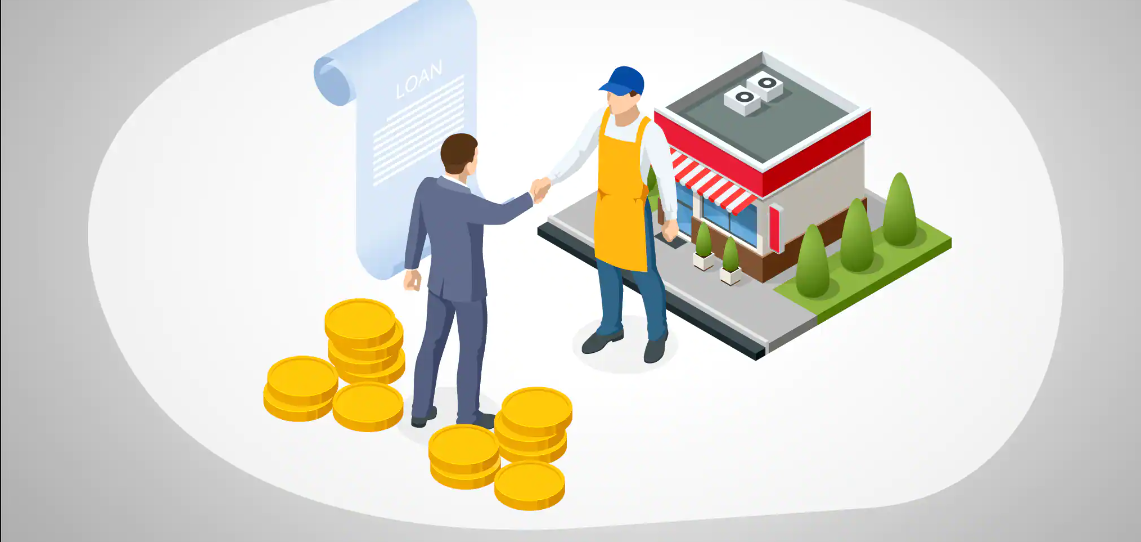When looking at financial products in the UK, it’s important to understand the rates on offer for different types of borrowing. One of the most common dilemmas is choosing between a credit card and a personal loan. These two options provide distinct advantages and can be suited for different kinds of financial needs.
Understanding Interest Rates: Credit Cards vs. Personal Loans

Credit cards and personal loans come with different interest rates that can significantly impact the total amount you will pay back. A credit card typically offers a revolving line of credit with variable interest rates. These rates can fluctuate based on market conditions and individual creditworthiness. On the other hand, personal loans generally offer fixed interest rates, which provide more predictable repayment amounts over a specific period.
The Annual Percentage Rate (APR) is a critical factor when comparing these two financial tools. For credit cards, the APR can be higher and vary widely. However, if you manage to pay off your balance each month, you can avoid interest charges altogether. Personal loans, usually used for larger expenses like home improvements or consolidating debt, offer a fixed APR, which makes budgeting easier.
By analyzing these different borrowing options, consumers can make informed decisions that suit their financial situation. Understanding interest rates in this context can help you avoid unnecessary costs and better manage your finances.
Flexibility vs. Stability
One major difference between credit cards and personal loans is the level of flexibility each provides. Credit cards offer greater flexibility because they allow you to borrow up to a certain limit and only charge interest on the amount you use. This revolving credit can be extremely useful for managing unexpected expenses or smaller purchases.
Personal loans, however, offer stability. When you take out a personal loan, you receive a lump sum of money that you then repay in fixed monthly installments. This stability is ideal if you have a large, planned expense or if you want to consolidate multiple debts into one manageable payment. The fixed repayment schedule can simplify budgeting and help you avoid the financial pitfalls of variable payments.
Fees and Other Costs
Besides interest rates, it’s also essential to consider other fees that might apply to credit cards and personal loans. Credit cards often come with a variety of fees, including annual fees, balance transfer fees, and late payment penalties. These additional costs can add up quickly if you’re not careful.
Personal loans, while typically having fewer fees than credit cards, still come with potential costs. These can include origination fees, late fees, and sometimes prepayment penalties if you pay off the loan early. It’s crucial to read the fine print and understand all the terms before committing to any loan.
By factoring in these additional costs, you can get a clearer picture of the true cost of borrowing. This due diligence can lead to smarter financial choices and prevent unexpected expenses from undermining your financial goals.
When to Choose a Credit Card or Personal Loan
Choosing between a credit card and a personal loan often depends on the specific financial needs and circumstances you are facing. Each has scenarios where it might be the better option. Knowing when to use each can help you optimize your finances.
For smaller, everyday purchases or short-term borrowing, credit cards can be very convenient. They offer quick access to funds and rewards programs that can provide added benefits. If you are able to pay off the balance in full each month, a credit card can be an excellent tool to manage expenses while avoiding interest charges.
Personal loans, however, are usually best for larger, longer-term financial needs. Whether financing a home improvement project, consolidating high-interest debt, or covering a significant one-time expense, a personal loan’s fixed rate and repayment schedule can offer the structure needed to manage substantial expenses effectively.
Impact on Your Credit Score
Another important aspect to consider when choosing between these two options is the impact on your credit score. Responsible use of credit cards can positively affect your credit rating. By keeping your credit utilization low and making timely payments, you can enhance your credit profile over time.
Personal loans can also influence your credit score but in different ways. Initially, applying for a personal loan might result in a temporary dip in your credit score due to the hard inquiry. However, consistent, on-time payments can improve your credit score over the life of the loan.
Final Thoughts
In summary, both credit cards and personal loans offer useful benefits and can serve different financial purposes. The choice between the two depends largely on what you need the funds for and your ability to manage repayment. Each product has its own costs, implications on credit, and benefits.
Before making a decision, it is important to thoroughly research and consider all factors, including interest rates, fees, and how each option aligns with your financial goals. By doing so, you can ensure that you select the borrowing option that best meets your needs.
Financial decisions should never be taken lightly, but with the right information, you can make choices that benefit your financial future.



